
A LNE Joint Research Project


WP1: Standardisation of blood-based measurements of P-tau (WP leader: UGOT)
The aim of this work package is to develop a reference measurement procedure (RMP) based on mass spectrometry for P-tau in plasma and candidate matrix-based reference materials (RMs) that can be used to standardise measurements of plasma P-tau and harmonise measurements between analytical platforms. Traceability to SI units will be achieved through the production of fully characterised protein and/or peptide primary calibrators. P-tau is currently included in the AT(N) framework for AD diagnosis together with other biomarkers and parameters of clinical relevance (determined by imaging) and allows to discriminate among AD and other form of dementia. The standardisation of the measurements for this biomarker will allow to establish cut-off values and reference ranges to apply to this framework.
WP2: Standardisation of NfL in blood (WP leader: LGC)
The aim of this work package is to standardise the measurement of the non-specific marker for neurodegeneration and axonal damage: neurofilamentlight chain (NfL).
The consortium will define what the target analyte is in a matrix (plasma or serum) and develop a reference measurement procedure by isotope dilution mass spectrometry (IDMS) for quantification of neurofilament in plasma or serum with a target uncertainty below 15 %.
We will also explore the development of matrix-based prototype RMs and assess the commutability of those with available measurement techniques.
A specific task will be devoted to the development of a routine, clinical LC-MS assay, allowing uptake of the RMP in clinical practice. Patient data will be correlated with analytical measurements with a potential to uncover new aspects of NfL that may aid patient stratification.
WP3: Metrological strategies for emerging biomarkers measurements and protein conformational states (WP leader: LNE)
The aim of this work package is to progress measurement for emerging biomarkers and novel approaches for protein structural conformation determination.
The first task will be devoted to GFAP, as an emerging biomarker candidate and the objective of the work will be to promote its implementation in clinical practice by developing a LC-MS to evaluate the feasibility for SI-traceable quantification in biological fluids.
The second task will address the development of MS-based approaches to monitor the conformational state of proteins involved in neurodegeneration, namely tau and GFAP, through the use of native mass spectrometry and cross-linking coupled to mass spectrometry.
WP4: Creating Impact (WP leader: Charité)